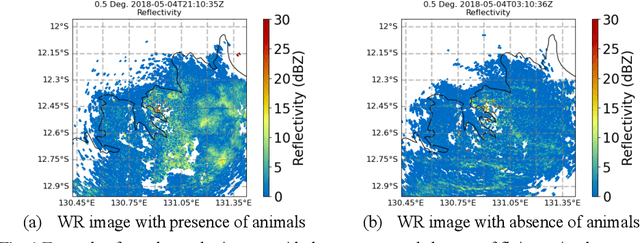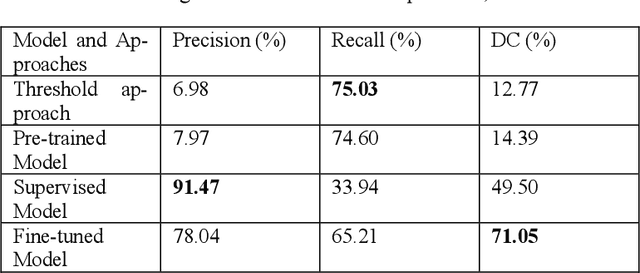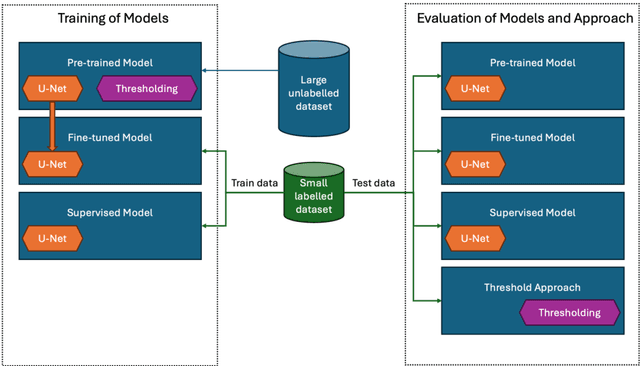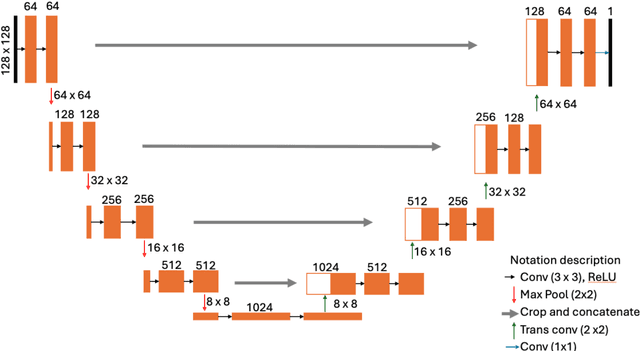Hazel Parry
Detection of Animal Movement from Weather Radar using Self-Supervised Learning
Aug 08, 2024



Abstract:Detecting flying animals (e.g., birds, bats, and insects) using weather radar helps gain insights into animal movement and migration patterns, aids in management efforts (such as biosecurity) and enhances our understanding of the ecosystem.The conventional approach to detecting animals in weather radar involves thresholding: defining and applying thresholds for the radar variables, based on expert opinion. More recently, Deep Learning approaches have been shown to provide improved performance in detection. However, obtaining sufficient labelled weather radar data for flying animals to build learning-based models is time-consuming and labor-intensive. To address the challenge of data labelling, we propose a self-supervised learning method for detecting animal movement. In our proposed method, we pre-train our model on a large dataset with noisy labels produced by a threshold approach. The key advantage is that the pre-trained dataset size is limited only by the number of radar images available. We then fine-tune the model on a small human-labelled dataset. Our experiments on Australian weather radar data for waterbird segmentation show that the proposed method outperforms the current state-of-the art approach by 43.53% in the dice co-efficient statistic.
 Add to Chrome
Add to Chrome Add to Firefox
Add to Firefox Add to Edge
Add to Edge